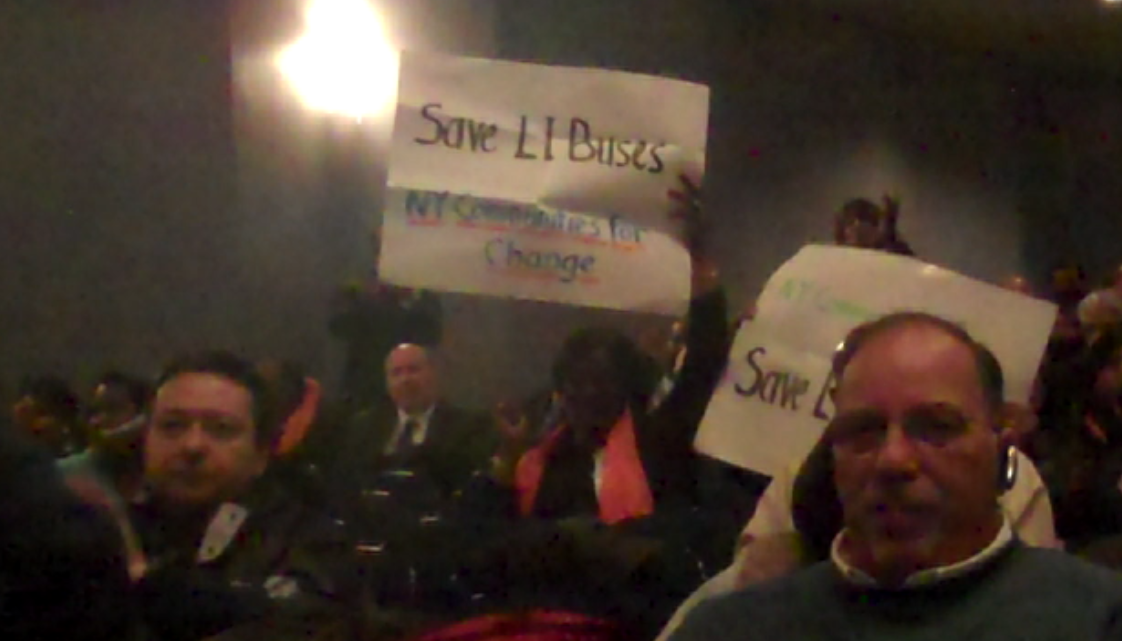
 Hundreds of Long Island Bus riders pleaded with MTA board members not to eliminate bus routes at a public hearing Tuesday while expressing concerns over a proposal by Nassau County Executive Edward Mangano to privatize the system.
Hundreds of Long Island Bus riders pleaded with MTA board members not to eliminate bus routes at a public hearing Tuesday while expressing concerns over a proposal by Nassau County Executive Edward Mangano to privatize the system.
The MTA called the hearing after officials said it will have to cut up to 27 of 48 routes since Nassau County is unable to fund its $26 million annual share of the $136 million budget for the bus system, which 100,000 daily riders use to get to work, school and connect with Able Ride, a transit system for the disabled. Mangano is entertaining offers from three private bus operators as an alternative—an idea that proved unpopular with the crowd gathered at Hofstra University.
“The county owns the bus system, it is their responsibility to provide it,” MTA Chairman Jay Walder said during a break from the hearing. “We actually work essentially as a contractor to them in providing the buses. ”
Brian Nevin, a spokesman for Mangano, defended the move to break ties with the Metropolitan Transportation Authority amid boos from riders in the audience.
“A public-private partnership will be forced to operate Long Island Bus because it makes sense for taxpayers,” Nevins said. “The private sector will run a bus service more efficiently and effectively not holding our taxpayers hostage.”
Riders—many of them elderly or disabled—spoke passionately about how they rely on Long Island Bus to get to medical appointments. Some said they would opt for a fare hike over bus cuts. Many in attendance held signs and chanted “save our buses” as they cheered on their fellow riders.
Tangia Miles, an Internet consultant from Valley Stream who has been riding the N1 for eight years, held up a petition signed by more than 500 bus riders opposed to the cuts.
“We are not in a third world country,” Miles said as her voice carried all the way to the back of the auditorium. “We shouldn’t have to beg for public transportation.”
The day before the hearing, Miles said she rode the N1 from 9 a.m. to 7 p.m. listening to stories from riders, and asking them to sign the petition to refute the MTA’s assertion that the line has low ridership.
“I personally can’t even begin to numerate the places that I wouldn’t be able to go to,” said a blind woman who used a guide dog to help her to the podium. “Obviously I’m blind and therefore I don’t think anyone wants me driving,” she said jokingly in one of the few moments of laughter.
A disabled rider in a wheel chair said, “I will not be able to go back and forth to my job,” if her route is cut. “And recently I moved from Garden City to Levittown on my own and I want to continue to use the bus.”
Miles said riders are weary not knowing what the future holds.
“It’s been very low moral,” on the bus Miles said, “a lot of people just wondering what’s going to happen next.”






